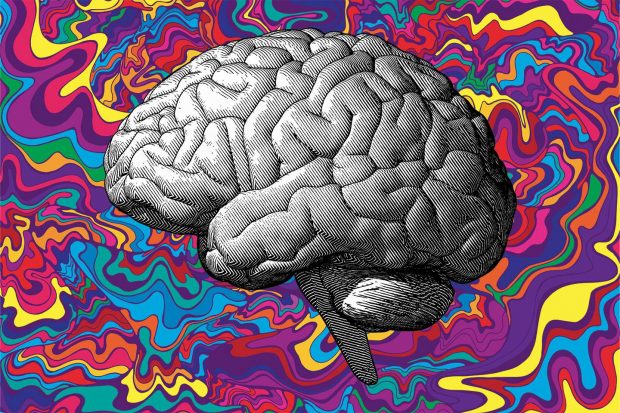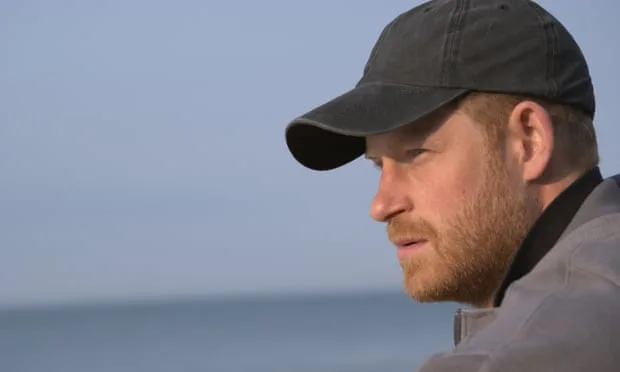How do you take care of your mental health? By going for a walk? Reading a book? Journaling? Well, if you’re Prince Harry, your mental health toolbox might include recreational and natural ingredients. In fact, the Duke of Sussex recently opened up about how psychedelics helped him deal with past traumas.
Prince Harry’s Journey with Psychedelics
During an online conversation with trauma expert Gabor Maté, Prince Harry opened up about a range of issues that he had touched on in his memoir, Spare. In the memoir, Harry spoke about his experience with various substances, that included cocaine, marijuana, and alcohol.
The Duke of Sussex admitted that cocaine didn’t really do much for him, but revealed that his experience with marijuana was “different” because it “actually did really help me.”
During his conversation with Maté, per Page Six, Harry spoke about his experience with psychedelics and how his mental health had benefited from their use.
“It was the cleaning of the windscreen, the removal of life’s filters — these layers of filters — it removed it all for me and brought me a sense of relaxation, relief, comfort, a lightness that I managed to hold back for a period of time…
I would say it is one of the fundamental parts of my life that changed me and helped me deal with the traumas and the pains of the past.”– Prince Harry
Do psychedelics benefit mental health?
The word psychedelics might trigger images of sweaty teenagers at a rave. However, in recent years, psychedelic drugs have undergone a renaissance. This is due to growing research highlighting their benefits for mental health.
Before psychedelics were seen as purely recreational drugs, there was growing research into how these particular drugs may benefit health. However, thanks to the War On Drugs in the ’70s and ’80s, this research was quickly halted. Thankfully, similar to cannabis, the research soon opened up, leading to more studies and clinical trials proving that their use may be the most powerful tool against mental disorders.
In recent years, the use of psychedelics has been linked to:
1. Depression and anxiety
Psilocybin is a compound found in magic mushrooms, a common psychedelic. According to a study published last year, participants with moderate to severe unipolar depression who were given two doses of psilocybin every 2 weeks for 20 months experienced reduced depression levels.
Ketamine, which is considered to be a party drug, has also been linked to helping alleviate depression and anxiety symptoms. So much so that in 2019, a prescription version of ketamine that could be administered through a nasal spray was approved by the FDA for treatment-resistant depression. It should be noted that this treatment is only available “under the supervision of a health care provider in a certified doctor’s office or clinic.”
2. PTSD
During his conversation with Maté, Prince Harry revealed that he has been diagnosed with PTSD.
Now, while he did not specify which psychedelic he had used, research has found a strong correlation between psychedelic use and improved PTSD symptoms.
A study published in Nature Medicine concluded that MDMA (commonly known as ecstasy) in an assisted therapy setting is highly efficacious in individuals with severe PTSD, with MDMA significantly alleviating PTSD symptoms.
3. Alcohol abuse cessation
Prince Harry has previously admitted that he relied heavily on alcohol for drugs in an effort to deal with his mother’s, Princess Diana’s, passing. While he credits his wife, Meghan Markle, with helping him quit alcohol, those with similar habits may benefit from the use of psychedelics to help them curb their drinking habits.

A recent study published in JAMA Psychiatry recruited 93 individuals with alcohol use disorder who drank alcohol for an average of around 60 days. For the study, 48 of these participants took doses of psilocybin, while the remaining 45 received a placebo.
Per the study’s findings, those who took had taken psilocybin experienced an 83% reduction in heavy drinking compared to the placebo group who reduced their heavy drinking by only 51%.
Are psychedelics safe?
Let’s be frank – no drug is 100% safe.
While studies have linked benefits to psychedelics, their risks have also been highlighted and they include;
- Psychological addiction
- psychosis (also known as a “bad trip”)
- mental health problems like hallucinogen-persisting perception disorder
- poor decision-making
That said, 2022 review did find that the medical risks of psychedelics are “often minimal”, with the majority of reported adverse effects not being observed in a regulated and/or medical context. This means that any of the risks and side effects associated with psychedelics are more likely to occur in a social setting, and not in a controlled medical environment.
Are they legal?
Recreationally? No.
Medically? Kind of.
As of March 2023, the U.S. government still classifies psychedelics as a schedule 1 substance. This means they do not recognize it as having any currently accepted medical use. They also believe it to have a high potential for abuse.
However, some states are attempting to legalize psychedelics.
For example, the state of Oregon has officially legalized the adult use of psilocybin.
This means that one can obtain psilocybin through a licensed service center. The psychedelic can only be consumed on the premises under the supervision of a licensed facilitator. Also, it’s not just anyone who has access to this, as they’ll need to be over the age of 21 in order to set up an appointment with a psilocybin service center.
How are people getting them?
Now, you may be wondering how people are getting access to psychedelics if they haven’t been legalized.
Well, while we aren’t sure how Prince Harry got access to his, participants who are using psychedelics may be doing so via clinical trials, psychedelic-assisted therapy, psychedelic retreats, or illegally purchasing and growing them.
What is the future of psychedelics?
Speaking to Healthline, Richard Jones, a UKCP-accredited psychotherapist at The Psychedelic Society, believes that Prince Harry’s admission may help to encourage conversations about the use of psychedelics for mental health,
“Prince Harry’s disclosure that psychedelics helped him deal with past traumas is a step towards challenging the remaining taboos around psychedelics,” he says.
Mental health is an area of concern that we should all be talking about – especially in the post-pandemic world. It is necessary to speak about therapies that may help us protect our mental health, and one of these therapies seems to be psychedelic.
Longevity Live Disclaimer: This article does not endorse the use of any psychedelics for recreational use.
References
Gukasyan, N., Davis, A. K., Barrett, F. S., Cosimano, M. P., et al. (2022). Efficacy and safety of psilocybin-assisted treatment for major depressive disorder: Prospective 12-month follow-up. Journal of Psychopharmacology, 36(2), 151–158. https://doi.org/10.1177/02698811211073759
Mitchell, J.M., Bogenschutz, M., Lilienstein, A. et al. MDMA-assisted therapy for severe PTSD: a randomized, double-blind, placebo-controlled phase 3 study. Nat Med 27, 1025–1033 (2021). https://doi.org/10.1038/s41591-021-01336-3
Schlag, A. K., Aday, J., Salam, I., Neill, J. C., & Nutt, D. J. (2022). Adverse effects of psychedelics: From anecdotes and misinformation to systematic science. Journal of psychopharmacology (Oxford, England), 36(3), 258–272. https://doi.org/10.1177/02698811211069100





![women [longevity live]](https://longevitylive.com/wp-content/uploads/2020/01/photo-of-women-walking-down-the-street-1116984-100x100.jpg)









